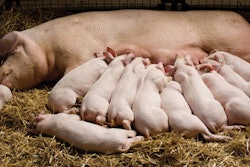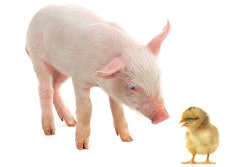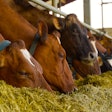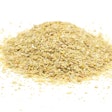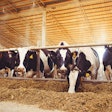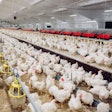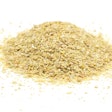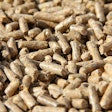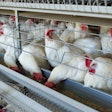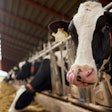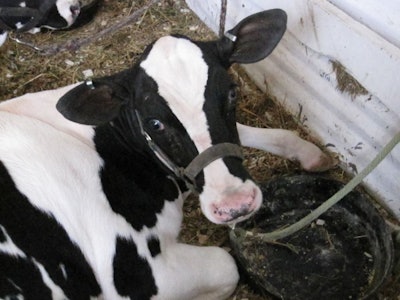
Used extensively in milk replacers, prebiotics such as fructo-oligosaccharides are not as widely included in calf starter feeds.
Calf milk replacers are routinely fortified with prebiotics. Gut health remains the main concern of calf growers because diarrheas can be costly and counterproductive.
Adding a prebiotic in a milk replacer improves the microbiota profile as beneficial populations, such as bifodo bacteria, are boosted. These, in turn, produce short-chain fatty acids that provide energy to the animal and reduce gut pH levels, whereas butyric acid is known to help in gut epithelium regeneration. Prebiotics in calf milk replacers are expected to confer similar beneficial effects to those observed in monogastric species.
In contrast, prebiotics are not as widely tested as an additive in calf starter feeds. These feeds are being offered during the same time calves drink milk. The role of a calf starter feed is that of speeding up digestive maturation and, most importantly, the development of the rumen. A well-developed rumen means calves will face fewer problems in the transition period post-weaning, and more efficient and profitable production.
Recent research in Latvia demonstrated that adding a source of fructans in calf starter feed ended in enhanced growth rates. Calves receiving a prebiotic in their starter feed ended up almost 9 kg heavier at the end of the 56-day experimental period. Such results require further validation and exploration. We remain unsure how a prebiotic such as fructo-oligosaccharides (FOS) may interact with rumen microorganisms, but it appears such interaction is beneficial. If FOS could enhance the establishment/development of fibrolytic bacterial populations, that would be a major boost in calf performance.
There are many prebiotic candidates used in milk replacers but very few, if any, used in calf starter feeds. This might be a reflection of the higher margins allowed in milk replacers, or due to the fact that many starter feeds are still home mixed, making difficult the procurement of many disparate raw ingredients. Whatever the reason, prebiotics deserve a second look as a digestive aid in calves.


